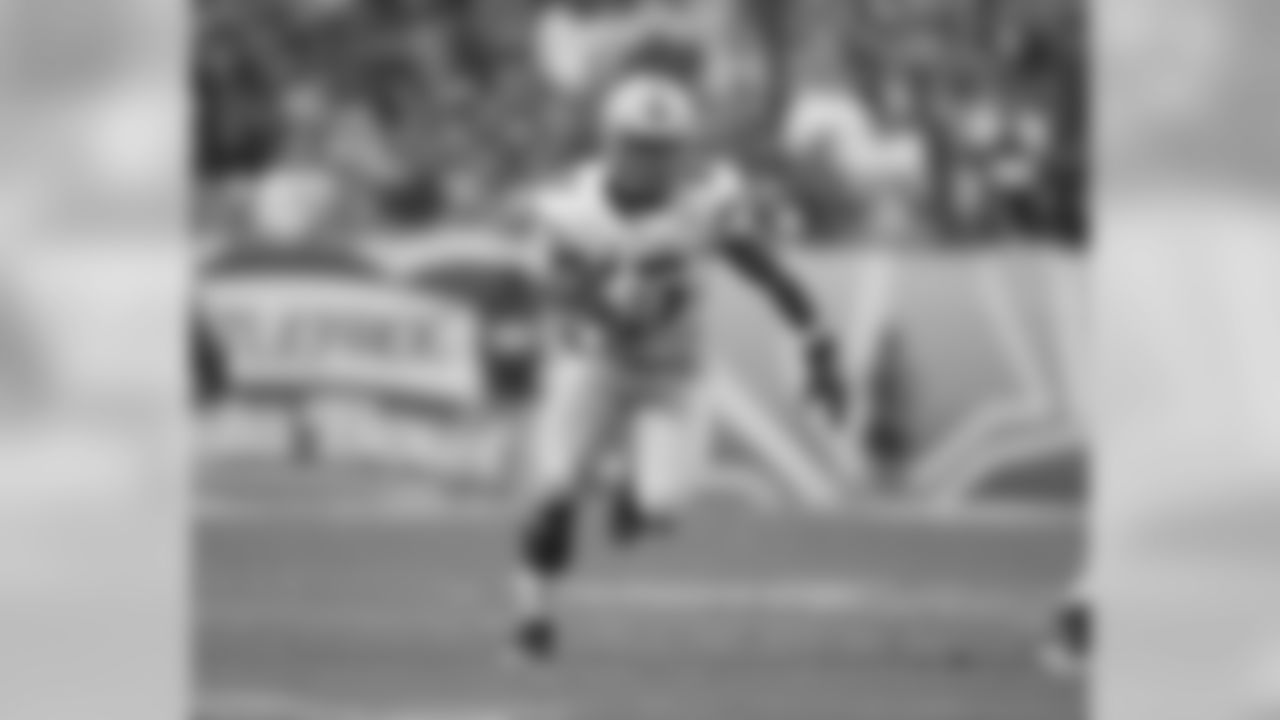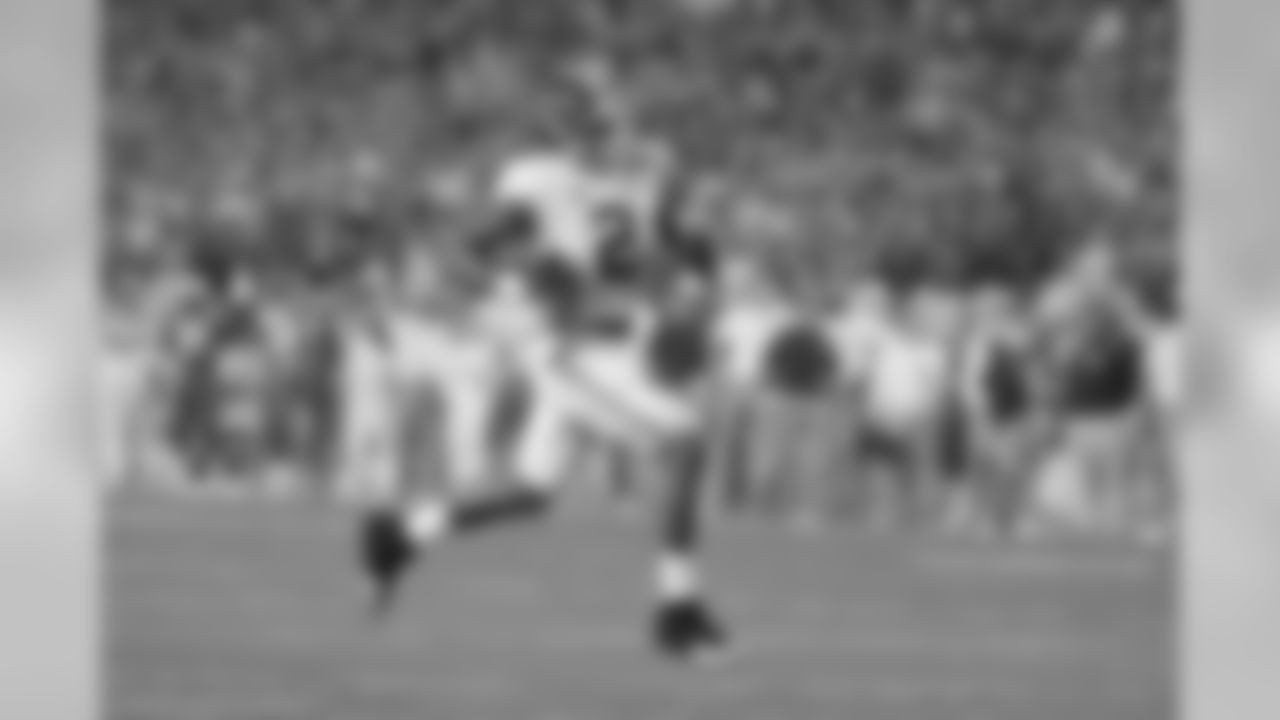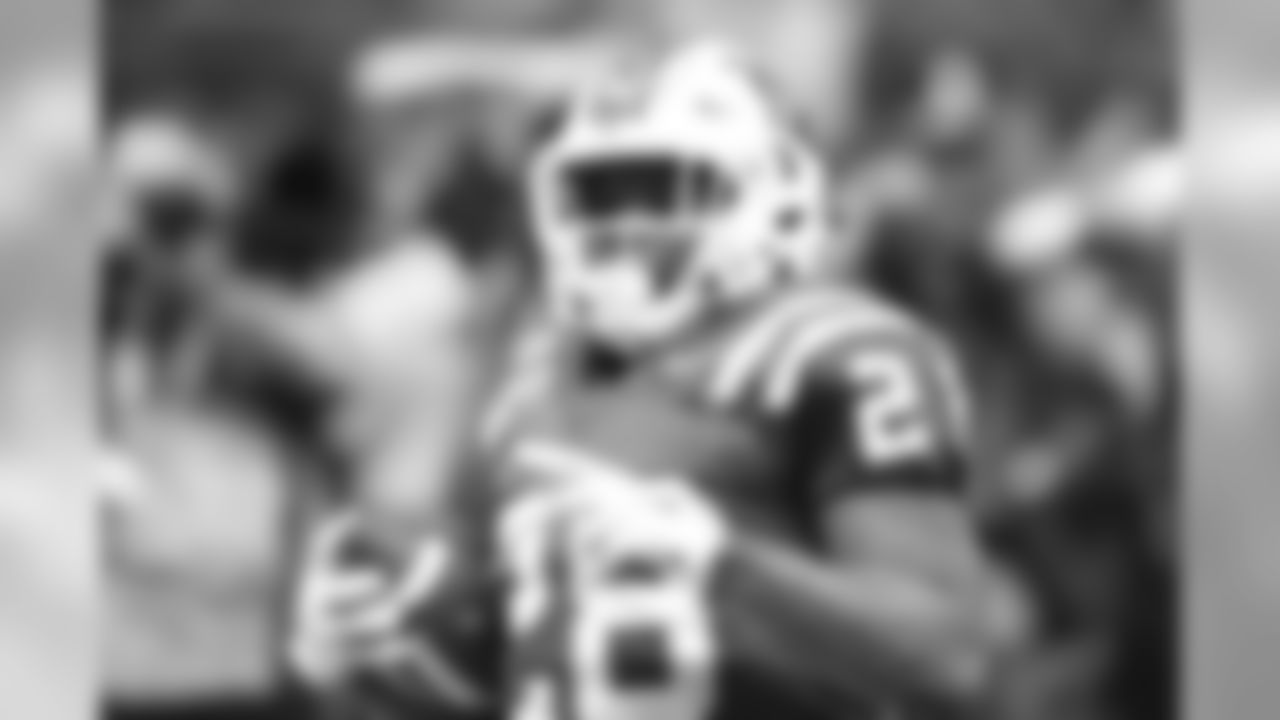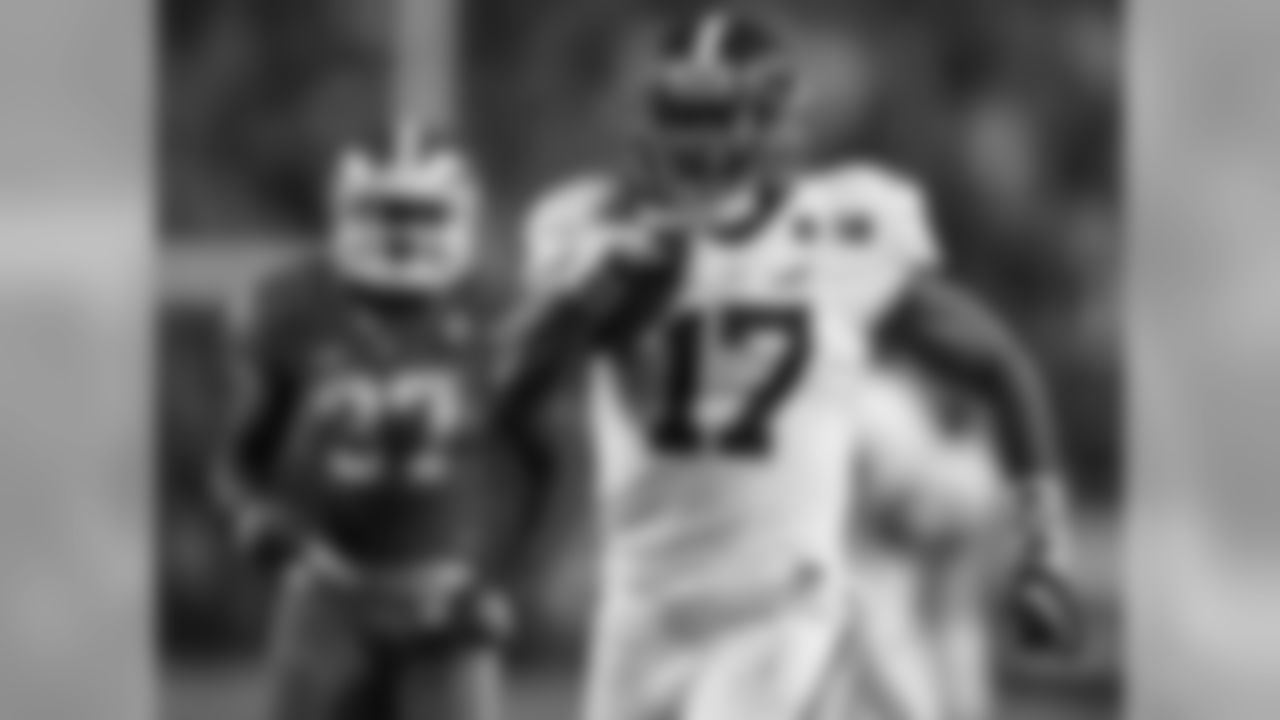With the NFL Draft coming up, Seahawks.com is taking a position-by-position look at where things currently stand with Seattle's roster, as well as the top prospects at each position. We'll also look at Seattle's draft history at each position under general manager John Schneider and head coach Pete Carroll.
Seattle currently holds nine picks in the 2016 draft, which begins on Thursday, April 28 in Chicago.
Round 1 | Pick 26 | No. 26 overall
Round 2 | Pick 25 | No. 56 overall
Round 3 | Pick 27 | No. 90 overall
Round 3 | Pick 35 | No. 97 overall*
Round 4 | Pick 26 | No. 124 overall
Round 5 | Pick 34 | No. 171 overall*
Round 6 | Pick 40 | No. 215 overall*
Round 7 | Pick 4 | No. 225 overall (from Dallas)
Round 7 | Pick 26 | No. 247 overall
- - Compensatory Pick (compensatory picks cannot be traded)
Draft History (Under Schneider and Carroll)
RB Robert Turbin* (No. 106 overall, 2012)
RB Christine Michael (No. 62 overall, 2013)
RB Spencer Ware* (No. 194 overall, 2013)
FB Kiero Small* (No. 227, 2014)
** signifies a player no longer with the team *
Where the Seahawks Stand
For years, the thought of heading into a season without Marshawn Lynch would have seemed disastrous for the Seahawks. But with Lynch announcing his retirement in very Marshawn Lynch fashion during the Super Bowl, the Seahawks are indeed heading into their first season without the Pro Bowl back since acquiring him in a 2010 trade. Yet as much as Lynch will be missed, the play of undrafted rookie Thomas Rawls in 2015 means the Seahawks' running game should still be in good hands even in a post-Lynch world. Rawls rushed for 830 yards last season on 147 carries, averaging a league-best 5.6 yards per carry. He eclipsed 100 yards in four of his first six starts before suffering a season-ending ankle injury, including a franchise rookie record 209-yard performance against the San Francisco 49ers.
Yet as bright as Rawls' future might be, the Seahawks still need to find depth at running back, be it through the draft or elsewhere. Seattle did re-sign Christine Michael, who revived his career late last season in his second stint with the Seahawks, but those are the only two backs on the roster with any NFL experience. The only other running back currently on the roster is Cameron Marshall, who was signed out of the Canadian Football League, and the Seahawks currently have no fullbacks under contract.
The play of Rawls and Michael last season should keep the Seahawks from feeling like they have to make running back an early-round priority—of course that doesn't mean they won't draft a running back early if the right player is available, such as when they took Michael in the second round of 2013—but at some point during the draft or in free agency, the Seahawks will need to add to this position.
Take a look at NFL Media Analyst Mike Mayock's Top 5 running backs in the 2016 NFL Draft.

Ohio State Buckeyes running back Ezekiel Elliott (15) during the Battlefrog Fiesta Bowl game against the Notre Dame Fighting Irish on Friday, Jan. 1, 2016 in Glendale, Ariz. (Ric Tapia via AP)

Alabama Crimson Tide running back Derrick Henry (2) runs for a touchdown during the NCAA College Football Playoff National Championship game against the Clemson Tigers on Monday, Jan. 11, 2016, in Glendale, Ariz. (Ric Tapia via AP)

Utah running back Devontae Booker (23) during the first half of an NCAA college football game against Arizona, Saturday, Nov. 14, 2015, in Tucson, Ariz. (AP Photo/Rick Scuteri)

Louisiana Tech running back Kenneth Dixon (28) races to the end zone for a touchdown following a reception against Arkansas State during second half action of the New Orleans Bowl college football game in New Orleans, Saturday, Dec. 19, 2015. (AP Photo/Parker Waters)

Alabama running back Kenyan Drake (17) returns a kick off for a touchdown during the second half of the NCAA college football playoff championship game against Clemson Monday, Jan. 11, 2016, in Glendale, Ariz. Alabama won 45-40.(AP Photo/Butch Dill)
NFL Media Draft Expert Mike Mayock's Top 5 Running Backs
*1. Ezekiel Elliott, Ohio State *
Bottom Line (via NFL.com): Elite, three-down running back who has the ability to excel in every facet of the game. Elliott has rare combination of size, athleticism, pass-catching and blocking skills and his competitive nature is always bubbling on the surface. While he's had to handle a heavy workload over the last two seasons, Elliot should still come out of the gates as one of the most productive young running backs in the league.
*2. Derrick Henry, Alabama *
Bottom Line (via NFL.com): Bell-cow running back with an ability to strap on feedbag and eat for four quarters. Henry's long legs and angular running style is a much better fit for downhill running teams who value lead backs and physicality. Henry needs early running room as he's not a creator in the backfield, but once he gets up a full head of steam, he is a nightmare with his ability to punish on the second and third level or take it to the house. Henry should come in and provide immediate production as a starter.
3. Devontae Booker, Utah
Bottom Line (via NFL.com): Rhythm runner who has experience in a pro-style running game and who gets better with the more carries he has. Booker is a three-down running back who has the toughness and determination to grind out short yardage while possessing the vision and footwork to create for himself when near the line of scrimmage or the second level. Booker isn't fast, but he plays at a consistent speed and should have enough quickness to be consistently productive as an NFL starting running back.
4. Kenneth Dixon, Louisiana Tech
Bottom Line (via NFL.com): Highly determined runner with a strong desire to compete through the whistle on every snap. Dixon possesses outstanding feet with exciting suddenness in his change of direction, but he's very willing to finish his runs with authority and has a knack for finding the end zone. Dixon has all the traits of being a quality, three-down starter in the NFL but his frame and suspect pass protection could be long-term concerns.
Kenyan Drake, Alabama
5 Bottom Line (via NFL.com): Drake became the forgotten running back with Derrick Henry's Heisman-winning season, but he has good size, quick feet and can catch the football. Drake's draft stock could depend on whether or not teams envision him as a quality backup who could become part of a committee approach. Drake's physical traits and special-teams ability could make him a good value selection early in the third day (Rounds 4-7).






